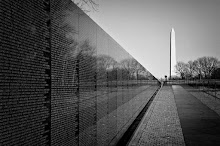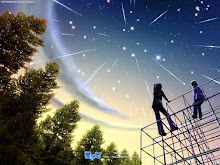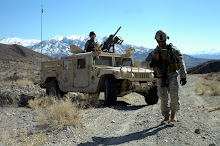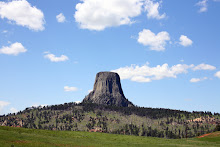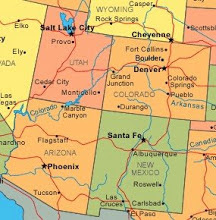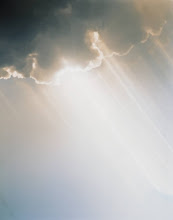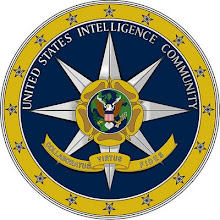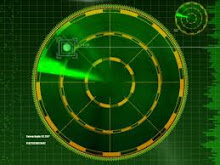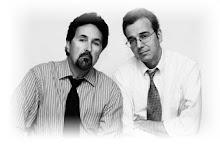By Steve Hammons
This month, news coverage of two research studies related to near-death experiences and belief in guardian angels provoked surprise, skepticism, and for some people, curiosity about transcendent and anomalous phenomena.
Are there cosmic connections between the two research project results?
The Human Consciousness Project at the University of Southampton in the UK began the biggest research study to date of near-death experiences (NDEs) among heart attack survivors who have been resuscitated.
The Baylor University Institute for Studies of Religion also released results of a survey that found more than half of those polled believed they have been helped by a guardian angel during their lives.
There is an obvious link between NDEs and angels.
For those who suspect there may be some truth in both of these phenomena, the connections between them take only a small leap of faith, or even of scientific logic.
If, when we pass on, we go from this existence to some other place, then this afterlife or other dimension is probably associated with the dimension from which angels conduct their activities.
DIMENSIONS AND HEAVENLY WORMHOLES
Some physicists now tell us that the Universe may have many dimensions, including several we may not be able to easily perceive.
The Universe may be a "multi-verse" where layers or interfaces of different realities exist in ways that are both separate and connected.
People who report NDEs often describe going through a tunnel-like experience. This tunnel is often described as consisting of warm and beautiful light – a deeply loving and compassionate light.
In some cases, at the end of this tunnel, they may meet loved ones who had previously passed on. Or, they may encounter other beings.
Sam Parnia, MD, PhD, lead researcher of the University of Southampton project, was quoted in the UK newspaper The Telegraph as noting, "What people experience during this period of cardiac arrest provides a unique window of understanding into what we are all likely to experience during the dying process."
These NDE accounts seem to indicate a pathway from our daily reality to another dimension or another kind of reality.
If we assume for a moment that this might be true, would it not then be possible for people living in that other dimension to return on occasion, in some way or for some reason to this plane of existence?
After all, the very nature of the NDE is that these people do return. Because they are medically resuscitated, or for some other reason, they do not stay in the other dimension. They return.
And often, they are fundamentally changed in their viewpoints and perceptions.
What about people who do continue on the path and are not resuscitated? Many believe that they (we) go somewhere else. Whether it is called Heaven, the afterlife or any number of names, there certainly have been millions of human beings who have made this journey.
In the Baylor University survey, more than half of adults polled say that a guardian angel has protected them at some time in their lives.
One in five of those respondents identified themselves as not being religious.
Why do so many people have this belief? Wishful thinking? A psychological security blanket? Or, is it something more?
If it is true that they (we) do go to another dimension of reality, what kinds of activities are undertaken there? Are the daily lives of family members and friends back on Earth simply forgotten and left behind? Or, are missions and projects undertaken that have some important meaning?
Why do angels or those who have passed on, if they exist, seem to conduct such activities in clandestine or covert ways, as is often reported?
Do these discreet activities and missions reflect what we sometimes call encounters with, interventions of or protection by guardian angels? Is this what people reported in the Baylor research poll?
CONSCIOUSNESS BEYOND DEATH
The NDE study at Southampton University, led by Dr. Parnia, is called the AWARE study, referring to "AWAreness during REsuscitation."
Parnia has done previous research on patient consciousness while experiencing clinical death.
The research will be conducted in the UK and the United States and will involve 25 hospitals. Researchers will look at 1,500 patients who had heart attacks that resulted in cessation of heartbeat and brain activity.
Parnia was quoted in The Telegraph newspaper as saying, "If you can demonstrate that consciousness continues after the brain switches off, it allows for the possibility that the consciousness is a separate entity."
The Telegraph article also quoted Parnia as explaining, "Contrary to popular perception, death is not a specific moment. It is a process that begins when the heart stops beating, the lungs stop working and the brain ceases functioning – a medical condition termed cardiac arrest, which from a biological viewpoint is synonymous with clinical death."
According to Parnia, "During a cardiac arrest, all three criteria of death are present. There then follows a period of time, which may last from a few seconds to an hour or more, in which emergency medical efforts may succeed in restarting the heart and reversing the dying process. "
Some recent scientific studies reportedly have found that 10 percent to 20 percent of people experiencing clinical death also claim to have had consciousness and vivid, very interesting experiences during the period between death and resuscitation.
AN ENCHANTED WORLD
The Baylor survey included a wide range of religious topics, not just guardian angel encounters. Christopher Bader, PhD, was the director of poll. The survey queried 1,700 people.
The response that generated the most interest, however, was the agreement by those polled with the following statement:
"I was protected from harm by a guardian angel."
Fifty-five percent of those surveyed agreed with this statement.
This general response was consistent across educational levels, geographic region and religious denominations.
Bader was quoted in TIME magazine as saying, "If you ask whether people believe in guardian angels, a lot of people will say, 'sure.' But this is different. It's experiential. It means that lots of Americans are having these lived supernatural experiences."
The number of people saying they believed they were protected by an angels was "the big shocker," Bader said.
The TIME article also quoted Randall Balmer, chairman of the religion department at Barnard College in New York. He said the Baylor survey reflects the fact that "Americans live in an enchanted world" and that "There is much broader uncharted range of religious experience among the populace than we expect."
According to an ABC News article on the Baylor poll, Rodney Stark, PhD, a professor of social sciences and co-director for studies of religion at Baylor, said, "While I knew there were a lot of people who had such [beliefs in angels], I wasn't prepared for the frequency of it."
skip to main |
skip to sidebar

In the past 30 days, readers from approximately 40 countries or territories using about 20 languages visited the Joint Recon Study Group site.

To see more articles, scroll down the right-side column.

Steve Hammons

Articles from the Joint Recon Study Group site and Transcendent TV & Media site are included.
The Joint Reconnaissance Study Group is the San Diego-based, combined-service/agency, research-and-activities team in my novels "Mission Into Light" and sequel "Light's Hand." This site contains information of interest to the JRSG.
Home page: Joint Recon Study Group site
Readers from around the world visit this site.

In the past 30 days, readers from approximately 40 countries or territories using about 20 languages visited the Joint Recon Study Group site.
April 2021 threat alert: ‘Force protection’ for our troops now the responsibility of all Americans
First responders must deal with society’s problems, shortcomings, injustices every day
Could some UFOs be linked to Native American 'white stone canoe' legends, stories?
Wildland firefighter basic training available at community colleges, tech schools, training centers
‘Boomer remover’ coronavirus is bigger threat to WWII generation that saved the world
‘Black swan’ events that aren’t: Coronavirus, climate emergency, unidentified aerial phenonema
Reagan’s complete 1987 UN message on ‘alien threat’ overlooked: Grave danger here, now
Was Reagan briefed about UFOs and original ‘Day the Earth Stood Still’ movie?
My military draft lottery number was #165 during final Vietnam War years
“Keep On The Sunny Side,” by The Whites, from movie O Brother, Where Art Thou?”
Living along Ohio River for centuries, Native Shawnee called it ‘Kiskepila Sepe’ – ‘Eagle River’
Native American words around us: States, towns, rivers, lakes, terrain, plants, animals, military
Athens County, Ohio, was key spot when colonists, Redcoats fought Shawnee in 1774 battle
1787 Northwest Ordinance set course for Ohio, Indiana, Illinois, Michigan, Wisconsin, Minnesota
Smallpox-tainted blankets were 1763 bioweapon on northern Appalachian Mountains frontier
Diana Krall performs “Maybe You’ll Be There" live in Paris with Paris Symphony Orchestra 2001.
Books to read in 2021? Novels "Mission Into Light" and the sequel "Light's Hand"
Novel excerpt: Renew, prepare America with ‘Urgent Response Group’ for teens, young adults
Diana Krall performs “I Get Along” live in Paris with Paris Symphony Orchestra 2001.
Steve Tyrell sings “Give Me the Simple Life.”
Diana Krall performs “Love Letters” live in Paris with Paris Symphony Orchestra 2001.
Visit the article archives!

To see more articles, scroll down the right-side column.
Novel "Mission Into Light" overview on Amazon
Novel "Light's Hand" overview on Amazon
Adventures of the Joint Recon Study Group: Overview and synopses of activities and operations
Key chapter overviews: Points of interest in the novel "Mission Into Light"
Key chapter overviews: Points of interest in the novel "Light's Hand"
Multimedia rights available
English and foreign-language book rights, audio book and e-book rights for "Mission Into Light" and "Light's Hand" are available. Movie and TV rights are available.
I'm seeking agent representation for these works and rights.
Please contact Steve Hammons for more information at hammons55@gmail.com.
Feature film screenplay
I completed a feature film screenplay in 2006 based on “Mission Into Light” and “Light’s Hand” combining key elements of both novels.
The screenplay takes audiences into the adventures and discoveries of the Joint Recon Study Group and the relationships among team members, friends and associates as they explore leading-edge research and emerging transcendent developments.
I'm seeking agent representation for this screenplay.
.........................
I also wrote a TV series pilot script based on "Mission Into Light" and "Light's Hand" story. I'm seeking agent representation this script.
About the Author

Steve Hammons
About the Author
I was born and raised in southwestern Ohio near the Kentucky and Indiana borders, then went to college at Ohio University in the southeastern Appalachian region of the state near West Virginia.
I graduated with a dual major in communication (journalism focus) and health education (psychology focus) with a minor in pre-law.
Ohio U. is home to the respected Scripps College of Communication and E.W. Scripps School of Journalism.
I also completed two graduate-level courses in guidance counseling theory and method at Ohio U.'s College of Education, School of Applied Behavioral Sciences and Educational Leadership.
At the end of my undergraduate education at Ohio University, I moved to the beautiful American Southwest where I applied my education, continual training and and ongoing experience to related professional fields such as health care, journalism and special research areas.
My novels "Mission Into Light" and the sequel "Light’s Hand" are available in e-book and 6"x9" paperback from most online booksellers worldwide.
Readers review metaphysical-military-intelligence adventure novel ‘Mission Into Light’
My articles on DoD CultureReady blog, Defense Language and National Security Education Office
Transcendent TV & Media site
Past articles: Scroll down the right-side column for more articles.

Articles from the Joint Recon Study Group site and Transcendent TV & Media site are included.











